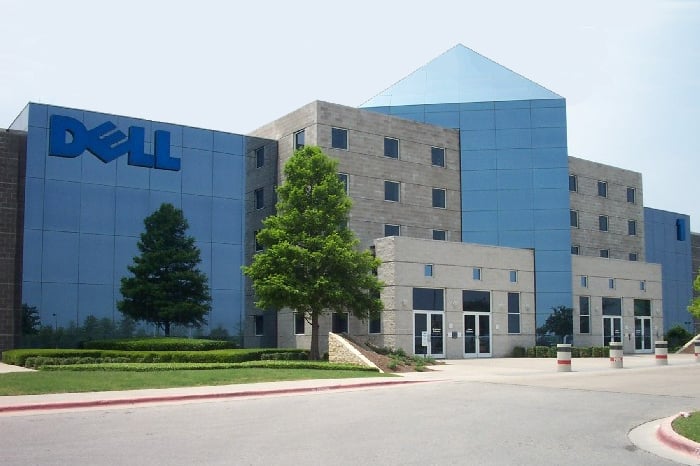Dell Inc. (NASDAQ: DELL) is besieged by investors who want an alternative future to Michael Dell’s plans to take the company private. Although Dell’s board recently issued a report in support of the deal, the resistance of several investors has grown. And now, apparently raider Carl Icahn has invested in Dell, which means he thinks the leveraged buyout (LBO) is in trouble, at least at the price Michael Dell’s group has offered. The only solution to the battle over Dell is to do what the company should have done years ago — break itself into pieces that include the Dell personal computer (PC) business on the one hand and its enterprise computing and consulting business on the other. Source: courtesy Dell Inc.
Source: courtesy Dell Inc.
Dell’s board claims it considered a breakup that might have satisfied large shareholders, led by Southeastern Asset Management and T. Rowe Price Group, who are against an LBO. The board may have figured that investors in revolt would realize that the board’s belief is true. Dell is worth no more than the LBO group offered. All of the chatter over whether Dell should be public or private has not moved shares above $14 or so, well below its 52-week high of $17.46 and its five-year high of almost $26. No matter who has made an offer, Dell’s value has not recovered from its drop over the past few years.
What did the board see when it looked at Dell’s parts? Most basically, a company that earned only $475 million on revenue of $13.7 billion last quarter. Both the top and bottom lines are falling. However, Dell has changed considerable in a year, even if Wall St. believes it is poorly managed. The company diversified further into businesses outside its core server and PC ones. In the past year, Dell bought IT management firms Quest Software, AppAssure Software, Clerity Solutions, SonicWALL, Wyse Technology and Make Technologies. Altogether, these buyouts raised Dell’s profile as a provider of sophisticated software.
All of its M&A activity and legacy operations essentially constitute at least two businesses. The first is its large enterprise and public units, and the second is its mid-size company and consumer operations. The first had revenue of nearly $8 billion last quarter and the second about $5.7 billion. The businesses operation under one roof masks the fact that the enterprise and public units together earned almost $700 million in the most recent quarter. The mid-sized and consumer businesses together made only $275 million.
Although in the world of valuations nothing is a sure thing, the Dell businesses that cater to larger clients are more attractive, financially, than those that cater to the lower end of the market. Wall St. likely would see them as such and put appropriate valuations on each. The large company business should have a value based on multiples at comparable companies like International Business Machines Corp. (NYSE: IBM) and Oracle Corp. (NASDAQ: ORCL). The small company business segment has a value closer to that of Hewlett-Packard Co. (NYSE: HPQ). Investors would get a chance to pick between the two in a breakup. That, at least, would cut through the fog of what Dell is worth when all of its unrelated segments are mashed together.
Sponsored: Attention Savvy Investors: Speak to 3 Financial Experts – FREE
Ever wanted an extra set of eyes on an investment you’re considering? Now you can speak with up to 3 financial experts in your area for FREE. By simply
clicking here you can begin to match with financial professionals who can help guide you through the financial decisions you’re making. And the best part? The first conversation with them is free.
Click here to match with up to 3 financial pros who would be excited to help you make financial decisions.
Thank you for reading! Have some feedback for us?
Contact the 24/7 Wall St. editorial team.



